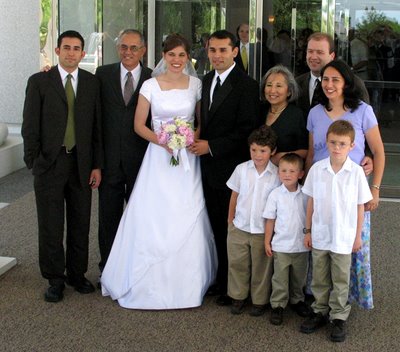ON the first day of his internship last year, Andrew McDonald created a Web site for himself. It never occurred to him that his bosses might not like his naming it after the company and writing in it about what went on in their office.
For Mr. McDonald, the Web log he created, "I'm a Comedy Central Intern," was merely a way to keep his friends apprised of his activities and to practice his humor writing. For Comedy Central, it was a corporate no-no — especially after it was mentioned on Gawker.com, the gossip Web site, attracting thousands of new readers.
"Not even a newborn puppy on a pink cloud is as cute as a secret work blog!" chirped Gawker, giddily providing the link to its audience.
But Comedy Central disagreed, asking him to change the name (He did, to "I'm an Intern in New York") and to stop revealing how its brand of comedic sausage is stuffed.
"They said they figured something like this would happen eventually because blogs had become so popular," said Mr. McDonald, now 23, who kept his internship. "It caught them off guard. They didn't really like that."
This is the time of year when thousands of interns and new employees pour into the workplace from college campuses, many bringing with them an innocence and nonchalance about workplace rules and corporate culture.
Most experienced employees know: Thou Shalt Not Blab About the Company's Internal Business. But the line between what is public and what is private is increasingly fuzzy for young people comfortable with broadcasting nearly every aspect of their lives on the Web, posting pictures of their grandmother at graduation next to one of them eating whipped cream off a woman's belly. For them, shifting from a like-minded audience of peers to an intergenerational, hierarchical workplace can be jarring.
Companies are beginning to recognize the schism and, prodded by their legal and public relations departments, are starting to adopt policies that address it.
"It is important that corporations make a choice as to what type of blogging they will allow," said Alfred C. Frawley III, director of the intellectual property practice group at the law firm Preti Flaherty in Portland, Me.
While there are differences in laws among jurisdictions, from a legal perspective, he said, it is generally accepted that companies have the right to impose controls on their employees' use of computers and other equipment used for communication.
As for content — information generated within a company — the law also allows employers to set limits, even on airing the company laundry outside the office, he said. Private employees do not receive the protection of the First Amendment because there is no government action involved, he said.
"If an employee deviates from the policy, it may be grounds for termination," Mr. Frawley said.
Viacom, the parent company of Comedy Central, now has an explicit policy. In a section on confidentiality, it states that the employee is "discouraged from publicly discussing work-related matters, whether constituting confidential information or not, outside of appropriate work channels, including online in chat rooms or 'blogs.' "
The problem for the employers is that, in a few highly publicized cases, public airing of workplace shenanigans has proved to be lucrative — and young people entering the workplace know it.
"The Devil Wears Prada," Lauren Weisberger's veiled account of her time working as an assistant to Anna Wintour, the Vogue editor, ushered in the modern "underling-tell-all" genre, abetted by other revenge-of-the-employee tales like "The Nanny Diaries," by Emma McLaughlin and Nicola Kraus. Both became best sellers that will be showing up on movie screens, with "Devil" opening next month.
Busted bloggers like Jessica Cutler (a former Capitol Hill intern whose blog, Washingtonienne, is now a novel), Nadine Haobsh (a former beauty editor whose blog Jolie in NYC earned her a two-book deal) and Jeremy Blachman (a lawyer whose blog Anonymous Lawyer is being released as "Anonymous Lawyer: A Novel" this summer) were all interns, entry-level employees and worker bees who traded up on in-the-trade secrets.
The generation entering the work world has noticed.
"Everybody I've read about that got fired for having a blog is on to such great things," said Kelly Kreth, 36, who was fired from her job as the marketing and public relations director at a real estate firm in Manhattan last fall for blogging about her co-workers.
"I've had my online diary for six years, and it is very important to me," Ms. Kreth said, calling the firing the best thing that happened to her. "It led to me opening my own business and making triple what I was making before."
Corporations have been slower to get the message.
"The vast majority of organizations don't have policies in place," said Jennifer Schramm, a workplace trends and forecasting manager at the Society for Human Resource Management in Washington.
The group found last year that only 8 percent of the 404 human resource professionals it polled had blogging policies, while 85 percent did not. (The other 7 percent did not know.)
Ms. Schramm said that is just as bad for the employee as for the employer. "Right now it is tough for individuals to know what is happening because so few organizations have a clear policy about employee blogging," she said.
Of course, as long as there have been managers and underlings, there have been disgruntled workers gabbing around the water cooler or over drinks at happy hour. E-mail and instant messages are merely a quicker way to say, "You wouldn't believe what a jerk my boss is."
Blogging takes the grumbling to another level, but one that makes sense when considering how much of it is going on out there. According to the Pew Internet and American Life Project, about 11 million people have created blogs at one time or another.
A blog and a job don't necessarily have to clash, some bloggers say.
Alexx Shannon's celebrity blog, www.britboyla.com, came up during his interviews for his internship at Paramount Pictures in Los Angeles this spring because he lists it on his résumé.
Mr. Shannon, 21, who is British and is spending a year at the University of California, Los Angeles, before finishing his studies at Kings College, London, said he signed an employee confidentiality agreement with both Paramount and Beacon Pictures, where he is now an intern. Beacon made clear that his blog, while about celebrities, would not include information he picked up at work.
"I suppose they did take kind of a risk," said Mr. Shannon, who confessed he sometimes had to sit on some truly juicy bits of celebrity gossip that he encountered at work.
Neither Paramount nor Beacon returned calls for comment.
"I just knew that I didn't want to jeopardize anything for my career," Mr. Shannon said. "My real life is more important to me than my online life." But other young employees don't see it that way.
Ms. Schramm of the human resources group said young people do not see their job as their identity. Dennis Kennedy, a lawyer and legal technology consultant with his own firm in St. Louis, said that attitude makes them more willing to take chances.
"It's like, 'This is who I am,' " he said. " 'Consequences are what they are. I'll go work for someone who doesn't have a problem with it.' "
But that's not as easy in fields with only a handful of jobs, as Jessa Jeffries Werner, a marine zoologist, found out.
This month, Ms. Werner, 25, who blogged under the name Jessaisms about jobs she held at Adventure Aquarium in Camden and the Academy of Natural Sciences in Philadelphia, was fired by the academy. Officials there also asked her to remove posts and pictures related to them from her site and her myspace.com page, and she did.
The confrontation was traumatic, Ms. Werner recounted, not always with perfect spelling or grammar, on another Web site: "I was still sobbing kind of quietly but I didn't want them to think that I was ashamed of what I had written. My parents read my blog. My old college friends keep up with my life through my blog. I took my badge off and looked at the mean HR lady who was smiling smuggly at me. She told me perhaps next time I would be more wise in my lifestyle and decision making choices regaurding work."
In an interview, she said she regretted crossing the line: "I came to the realization that I probably shouldn't have been blogging about work."
But it is the success stories that can embolden a determined blogger. Ms. Kreth was able to create her own public relations business out of the fallout. Because of his blog, Mr. Shannon was asked to be on a television pilot. For Mr. McDonald, the Comedy Central intern, it was the call of literary agents.
Now back in Kenosha, Wis., where he is finishing up his degree in English at the University of Wisconsin, Parkside, Mr. McDonald is hard at work on a book — a novel about a guy from Wisconsin who gets a job in New York.



















































